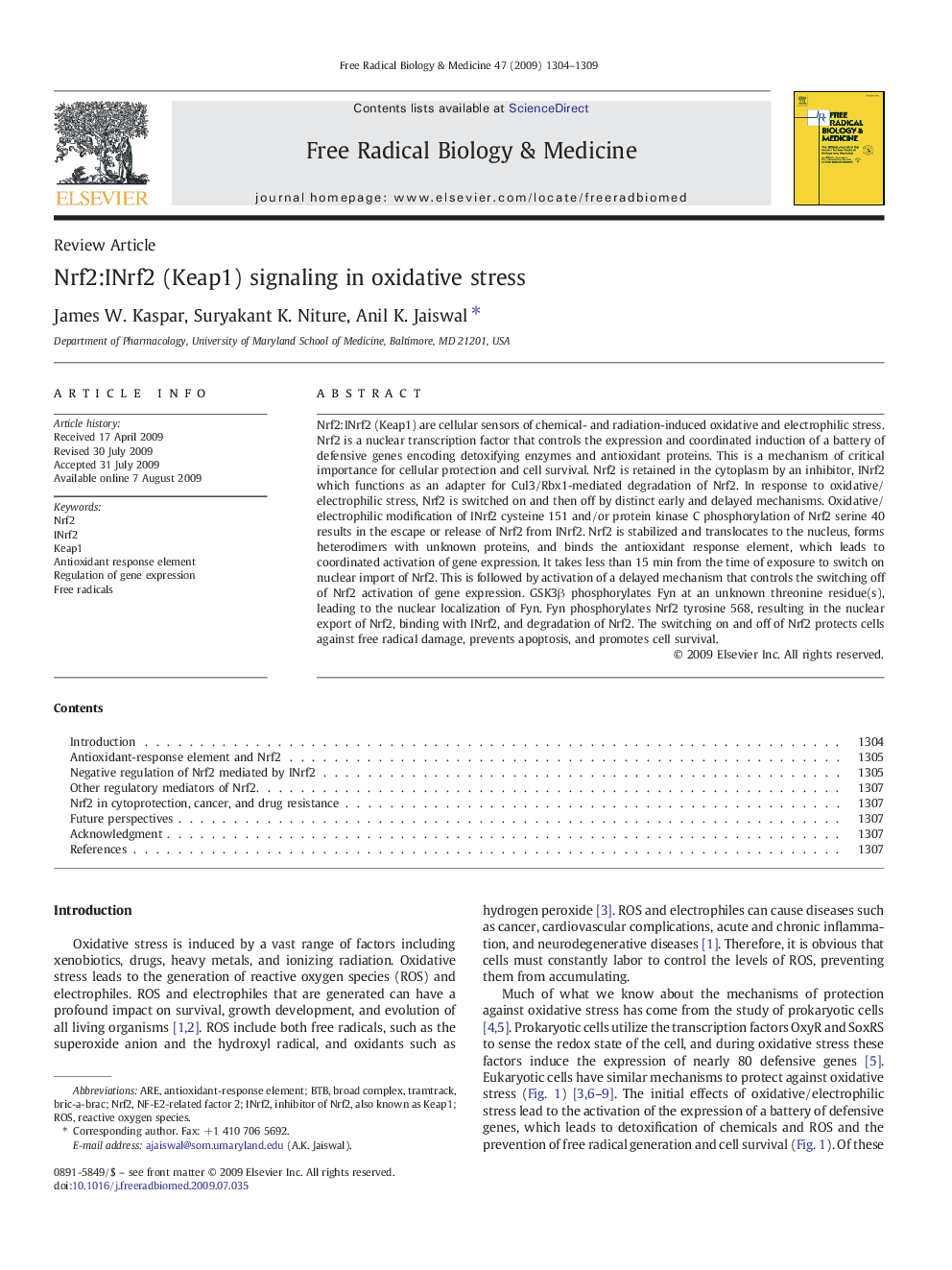| کد مقاله | کد نشریه | سال انتشار | مقاله انگلیسی | نسخه تمام متن |
|---|---|---|---|---|
| 1909893 | 1046745 | 2009 | 6 صفحه PDF | دانلود رایگان |

Nrf2:INrf2 (Keap1) are cellular sensors of chemical- and radiation-induced oxidative and electrophilic stress. Nrf2 is a nuclear transcription factor that controls the expression and coordinated induction of a battery of defensive genes encoding detoxifying enzymes and antioxidant proteins. This is a mechanism of critical importance for cellular protection and cell survival. Nrf2 is retained in the cytoplasm by an inhibitor, INrf2 which functions as an adapter for Cul3/Rbx1-mediated degradation of Nrf2. In response to oxidative/electrophilic stress, Nrf2 is switched on and then off by distinct early and delayed mechanisms. Oxidative/electrophilic modification of INrf2 cysteine 151 and/or protein kinase C phosphorylation of Nrf2 serine 40 results in the escape or release of Nrf2 from INrf2. Nrf2 is stabilized and translocates to the nucleus, forms heterodimers with unknown proteins, and binds the antioxidant response element, which leads to coordinated activation of gene expression. It takes less than 15 min from the time of exposure to switch on nuclear import of Nrf2. This is followed by activation of a delayed mechanism that controls the switching off of Nrf2 activation of gene expression. GSK3β phosphorylates Fyn at an unknown threonine residue(s), leading to the nuclear localization of Fyn. Fyn phosphorylates Nrf2 tyrosine 568, resulting in the nuclear export of Nrf2, binding with INrf2, and degradation of Nrf2. The switching on and off of Nrf2 protects cells against free radical damage, prevents apoptosis, and promotes cell survival.
Journal: Free Radical Biology and Medicine - Volume 47, Issue 9, 1 November 2009, Pages 1304–1309